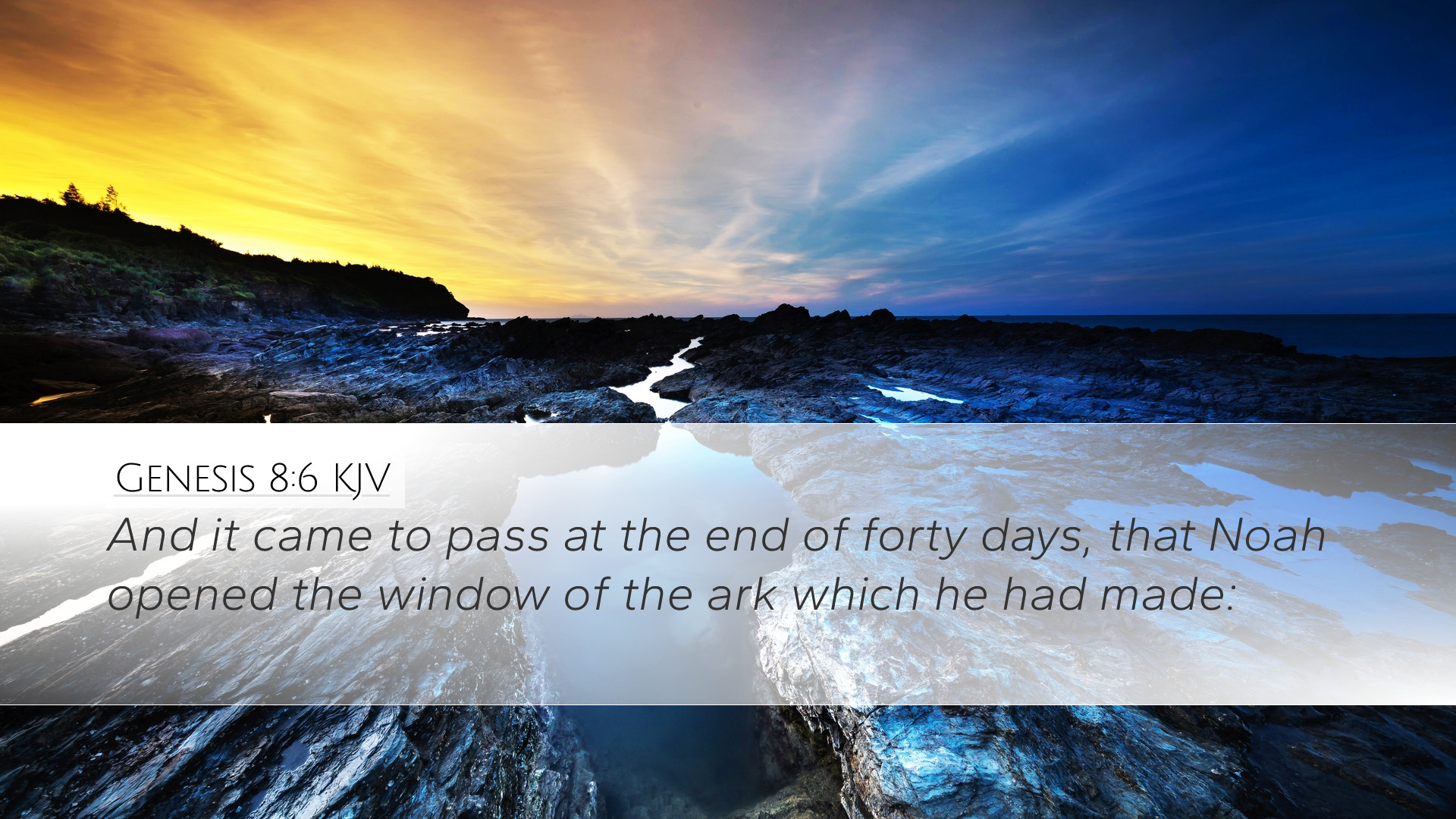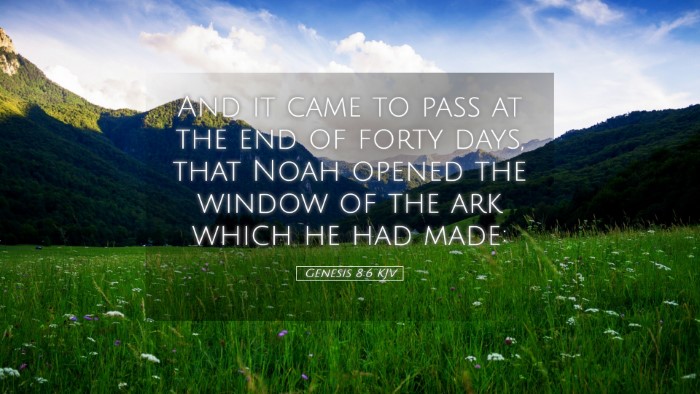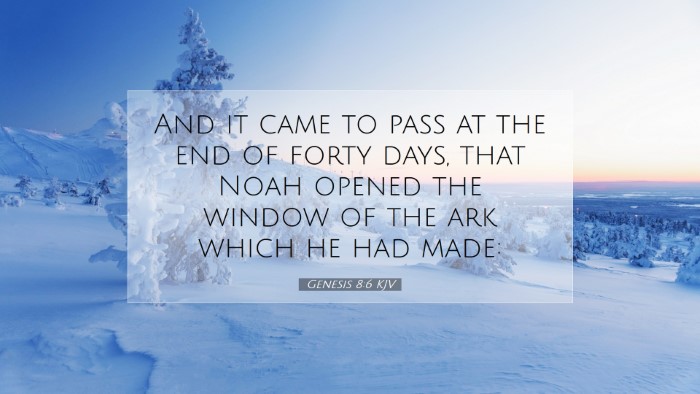Commentary on Genesis 8:6
Text of Genesis 8:6 (KJV): "And it came to pass at the end of forty days, that Noah opened the window of the ark which he had made."
Overview
This verse marks a significant moment in the narrative of Noah and the Flood. The opening of the ark's window symbolizes hope and a step towards God's restoration of creation. Through the insights of revered public domain commentaries, we will explore the theological, historical, and practical implications of this pivotal moment.
Theological Insights
The number forty frequently appears throughout Scripture, often symbolizing a period of trial, testing, or purification. This association indicates the seriousness of the Flood and the commitment required in Noah's preservation of life.
-
Matthew Henry notes that the forty days served as both a test of Noah's faith and a prelude to the renewal of the earth. Henry emphasizes the importance of waiting on God’s timing during periods of trial.
-
Albert Barnes elaborates on the symbolism of the ark’s window. He positions it as a representation of the human spirit yearning for divine revelation and guidance, affirming that Noah’s actions reflect trust in God amidst uncertainty.
-
Adam Clarke points out that opening the window can be interpreted as an act of obedience to God’s command. Clarke suggests that this was an important step for Noah in demonstrating his readiness to embrace the next phase of God’s plan for humanity.
Historical Context
The context surrounding this event is essential to fully appreciate its significance. The account of the Flood in Genesis has been interpreted not only as a historical event but also as an allegory for judgment and mercy. By understanding the customs and beliefs during Noah's time, we gain clarity on the importance of the ark as a vessel of salvation.
-
Matthew Henry contextualizes the Flood as God's just judgment against rampant wickedness. The manual construction of the ark is portrayed as a testament to Noah's faith and obedience amid a corrupt society.
-
Albert Barnes discusses the cultural significance of the ark, emphasizing the contrast between the divine instructions Noah followed and the prevailing morals of his contemporaries. This juxtaposition serves as a lesson on faithfulness amidst societal pressures.
Practical Applications
The actions of Noah in this verse encourage believers to reflect on how they respond to God’s promises and commands in their lives. The period of waiting serves as a reminder that divine timing is often different from human expectations.
-
Faith in Action: As Noah opened the window, believers are called to actively seek God's revelation and guidance. This can be realized through prayer, studying Scripture, and engaging in community.
-
Patience and Trust: The forty days Noah waited illustrate the necessity of patience. In times of uncertainty, the faithful are called to trust God's plan, just as Noah did.
-
Hope and Renewal: The opening of the window symbolizes hope. Pastors can encourage their congregations to remain hopeful for renewal and restoration in their own lives and communities.
Conclusion
Genesis 8:6 serves as a profound reminder of God's faithfulness and the importance of obedience, patience, and hope. Analyzing this verse through the lenses of Matthew Henry, Albert Barnes, and Adam Clarke enriches our understanding and application of the text. Pastors, students, theologians, and Bible scholars must continue to explore such narratives deeply, as they provide timeless truths for navigating our faith journey in the contemporary world.


